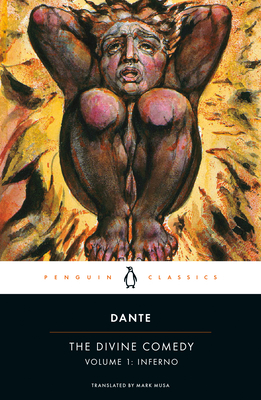






One of the most beloved poets of the twentieth century, Rainer Maria Rilke is widely celebrated for his depth of insight and timeless relevance. He has influenced generations of writers with his classic Letters to a Young Poet, and his reflections on the divine and our place in the world are disarmingly profound. A Year with Rilke provides the first ever reading from Rilke for every day of the year, including selections from his luminous poetry, his piercing prose, and his intimate letters and journals. Rilke is a trusted guide amid the bustle of our daily experience, reflecting on such themes as impermanence, the beauty of creation, the voice of God, and the importance of solitude. With new translations from the editors, whose acclaimed translation of Rilke's The Book of Hours won an ardent readership, this collection reveals the depth and breadth of Rilke's acclaimed work.


One of the great classics of European literature, Faust is Goethe's most complex and profound work. To tell the dramatic and tragic story of one man's pact with the Devil in exchange for knowledge and power, Goethe drew from an immense variety of cultural and historical material, and a wealth of poetic and theatrical traditions. What results is a tour de force illustrating Goethe's own moral and artistic development, and a symbolic, cautionary tale of Western humanity striving restlessly and ruthlessly for progress.
Capturing the sense, poetic variety, and tonal range of the German original in present-day English, Stuart Atkins's translation presents the formal and rhythmic dexterity of Faust in all its richness and beauty, without recourse to archaisms or interpretive elaborations. Featuring a new introduction by David Wellbery, this Princeton Classics edition of Faust is the definitive English version of a timeless masterpiece.


Paul Celan was born in 1920 in the East European province of Bukovina. Soon after his parents, German-speaking Jews, had perished at the hands of the Nazis, Celan wrote Todesfuge (Deathfugue), the most compelling poem to emerge from the Holocaust. Self-exiled in Paris, for twenty-five years Celan continued writing in his German mother tongue, although it had passed through the thousand darknesses of deathbringing speech. His writing purges and remakes that language, often achieving a hope-struck radiance never before seen in modern poetry. But in 1970, his psychic wounds unhealed, Celan drowned himself in the Seine. This landmark volume includes youthful lyrics, unpublished poems, and prose. All poems appear in the original and in translation on facing pages. John Felstiner's translations stem from a twenty-year immersion in Celan's life and work. John Bayley wrote in the New York Review of Books, Felstiner translates ... brilliantly.


The hallucinatory prose-poems of Arthur Rimbaud rank among the glories of 19th-century French literature. -- New York Times
One of the world's most influential poets, Arthur Rimbaud (1854-1891) is remembered as much for his volatile personality and tumultuous life as he is for his writings, almost all of which he produced before the age of twenty. Paul Schmidt's acclaimed collection brings together his complete poetry, prose, and letters, including The Drunken Boat, The Orphans' New Year, After the Flood, and A Season in Hell. Complete Works is divided into eight seasons--Childhood, the Open Road, War, the Tormented Heart, the Visionary, the Damned Soul, a Few Belated Cowardices, and the Man with the Wind at His Heels--that reflect the facets of Rimbaud's life. Insightful commentary by Schmidt reveals the courage, vision, and imagination of Rimbaud's poetry and sheds light on one of the most enigmatic figures in letters.




This complete collection of the Enneads unites the entire compendium by Plotinus, in an authoritative translation by classical scholars James MacKenna and B. S. Page.
Following the traditional organization performed by Porphyry of Tyre, the six Enneads are comprised of a total of fifty-four tractates. Each of these concerns a subject of Plotinus' philosophy, be it the transit of the soul in the afterlife, the nature of phenomena such as beauty, or the characteristics of emotions such as happiness. Many of the writings are in the Platonist tradition, in keeping with the educational ideas of classical antiquity: Plotinus lived in Rome during the 3rd century AD, and was tutored in philosophy according to centuries of established practice.
Significantly, Plotinus taught about the idea of the One, a supreme being of the universe that could not be divided. His elaborations on this subject, plus his extensive discussions of human emotion and moral philosophy, made him popularly referenced by pagans of his time, and successive waves of religious intellectuals, particularly from the Renaissance-era onward. In the 19th century a revival of interest took place, with the term neo-platonism assigned to late-classical era philosophies pioneered by Plotinus.

The Walt Whitman of Los Angeles.--Joyce Carol Oates, bestselling author
He brought everybody down to earth, even the angels.--Leonard Cohen, songwriter
What Matters Most Is How Well You Walk Through the Fire is the second posthumous collection from Charles Bukowski that takes readers deep into the raw, wild vein of writing that extends from the early 1970s to the 1990s.


